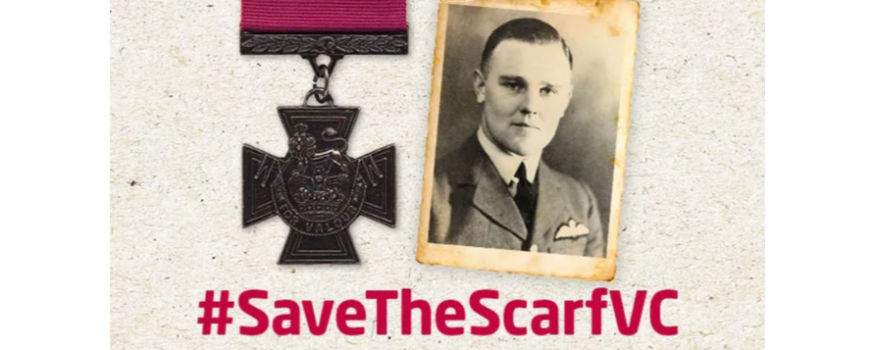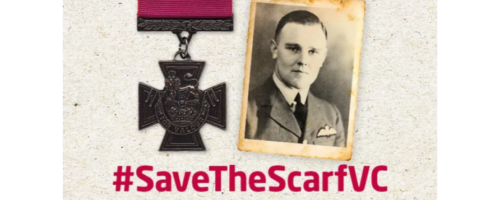The Royal Air Force Museum is campaigning to save the only Victoria Cross awarded to a member of the Royal Air Force during the fighting in the Far East in the Second World War.
On 9 December 1941, Squadron Leader Arthur Scarf, who was born in Wimbledon in 1913, led a formation of Bristol Blenheim aircraft in a daylight attack on Japanese forces occupying airfields in Thailand. As Scarf became airborne, a formation of Japanese bombers swept over the airfield and destroyed every British aircraft that had been on the ground. Realising that none of his Squadron’s aircraft had survived the bombing, Scarf resolved to complete his mission.
Flying low for some 30 miles into enemy occupied territory, Scarf skilfully evaded several attacks by Japanese fighters whilst his crew manned the machine guns. Despite being hit, losing the use of his left arm and drifting in and out of consciousness, he successfully made a controlled crash landing at Alor Star – where Scarf’s pregnant wife had worked as a nurse until a few weeks earlier. His crew survived the mission but Scarf died of his wounds later that day.
The Victoria Cross was posthumously awarded to Scarf in 1946 and presented to his widow, Mrs Elizabeth Scarf, by King George VI at Buckingham Palace. This medal was one of only 22 Victoria Crosses awarded to RAF personnel during the Second World War, and the only one for their services in the Far East.
The medal has been sold at auction to an overseas buyer, but the Royal Air Force Museum has been given the opportunity to fundraise and match the sale price of £660,000, which will allow the museum to display the medal and share Arthur’s story. Having successfully raised just over £600,000, the Museum is seeking support from the public and other organisations to complete their target by 30 April 2023.
Click here to visit the fundraising page and for more details.










